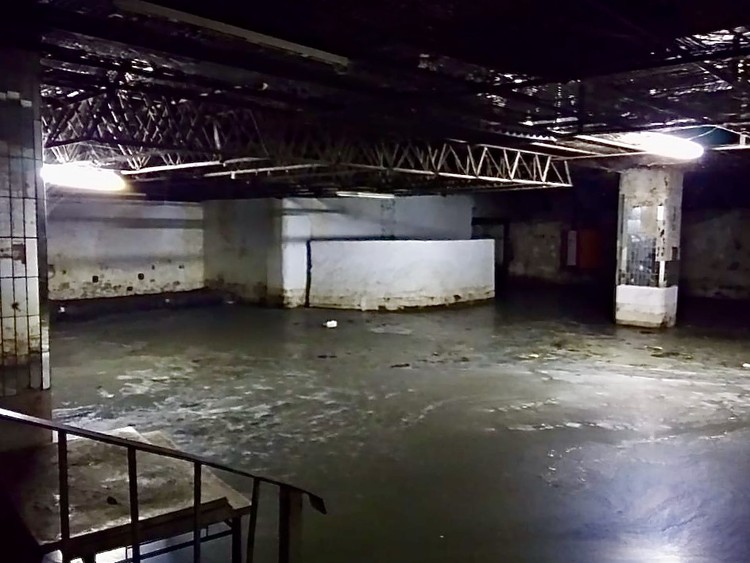
6 February 2023
The sewage pool in the basement of Chelsea House, Hillbrow, Johannesburg. Photos: Musawenkosi Cabe
As you enter Chelsea House in Johannesburg’s inner city suburb of Hillbrow, you are hit by an unbearable stench.
“We are living in a pool of sewage,” says Mokweng Mohlapamaswi, who has been a resident here for 13 years.
If the water rises much more it will come into contact with the electricity box.
Mkhomazi Nyilika, together with other residents from Chelsea House, say they have reported the matter to the Johannesburg Social Housing Company (JOSHCO) and the local councillor. But they have had no response.
“As tenants we urgently call on the City to intervene and help us drain the sewage and make sure that basic services are provided to us urgently,” said Nyilika.
Ward 64 Councillor Jack Sekwaila (ANC) said in mid 2022 he assisted the tenants by getting JOSHCO to drain the sewage water. But in no time, the residents complained the water was back.
“The biggest challenge is that people of Chelsea, less than 10% of them, are paying their services to the City. It then becomes a problem for the City to service them,” says Sekwaila.
But Siyabonga Mahlangu, activist and secretary of the Inner City Federation, says cutting off people from basic services because they cannot afford them is unlawful and unconstitutional, and amounts to a forceful eviction.
“Refusing to remove sewage is a total disregard of their dignity and children’s rights guaranteed by the Constitution,” he says.
If JOSHCO cannot do it, then the City must, he said.
The City of Johannesburg established JOSHCO in 2004 to help with the housing backlog by providing affordable housing for low-income households. It is also tasked with upgrading hostels and managing city-owned rental units. It has managed 8,825 rental units. Chelsea House, with six floors and 120 units, is among them.
Residents say in mid 2022 the caretaker left. Cleaners stopped coming around December last year. For almost three years, they had been cleaning with plain water and no detergent. The building is in a state of collapse. The 5th and 6th floors do not have water. Communal showers and bathrooms are in a state of disrepair.
Sekwaila places the blame on the residents accusing them of vandalism.
Most residents came from La Rosabella, a building owned by the City that became unfit for human occupation. They say JOSHCO had assured them that it would assist with finding employment so that they could afford the rent.
Mandisa Nxopo, a tenant for 15 years, says no job ever materialised.
JOSHCO says on its website “as part of the expanded public works programme, [we] also provide jobs for residents to help cover rental costs and feed their families”.
Nthabiseng Mphela, JOSHCO spokesperson, said “a service provider to investigate the root cause and drain the sewage” had been appointed.
Mphela said JOSHCO had notified the tenants six months ago that to fix the structural defects required the building to be closed and vacated.
“The building was condemned as per the basic Occupational Health and Safety Act. We therefore cannot allow our staff to work in a building that is condemned,” said Mphela.
“Most of the challenges surrounding Chelsea were reported during the oversight visit by the new executive management who later notified City council about the hazardous conditions and opted to condemn the building with the view that tenants should start moving out so that the building can have a site establishment for reconstruction of the sewage line, plumbing and electrical works.”
JOSHCO did not indicate whether alternative accommodation had been made available for the tenants, but only said “ tenants were advised to move out and apply for other JOSHCO projects or private social housing in Johannesburg”.
Left without refuse collection, tenants dump their garbage in this skip. They burn it, affecting people in the area.